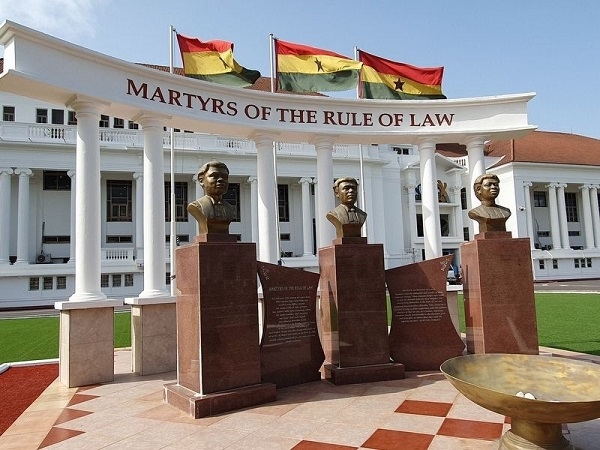I seriously doubt that it can, and here are my reasons.
Article 106(1) of the 1992 Constitution provides that “[t]he power of Parliament to make laws shall be exercised by bills passed by Parliament and assented to by the President.” This means that the legislative process commences with the laying of a bill in Parliament and ends with the assent or signature of the President. It also follows that, an action that calls for the judicial review of a bill passed by Parliament but yet to be signed by the President will be an invitation to the Supreme Court to interfere in the legislative process. This will be both inappropriate and unconstitutional.
Under Article 106(1), there is a textual commitment of the legislative process to the political branches (Parliament and the President). Thus, except in exceptional cases where Parliament is purporting to exercise a power expressly prohibited by the Constitution, such as considering a bill to create a one-party state (prohibited under Article 3), I do not think that the Court has jurisdiction to interfere in the legislative process. Nor would it be prudent for it to do so, even if it considers itself as having such jurisdiction.
In respect of legislative measures, the Court’s power of judicial review kicks in after the measure becomes law. This much is clear from Article 130(1), which states that “the Supreme Court shall have exclusive original jurisdiction in— (b) all matters arising as to whether an enactment was made in excess of the powers conferred on Parliament or any other authority or person by law or under this Constitution.” An enactment is an Act of Parliament, a legislative instrument, or a constitutional instrument, or the provisions of such Act, legislative instrument, or constitutional instrument. Never a bill! (See the Interpretation Act 2009). Therefore, a constitutional challenge to a bill (which does not yet have the force of law) is premature and ought to be rejected. I’d only make an exception for those exceptional cases where the Court’s power is invoked to enforce an express constitutional prohibition on the powers of Parliament, such as when Parliament is proceeding to enact a one-party state law.
By this reasoning, I also consider that the right to challenge the constitutionality of ‘acts’ or ‘omissions’ that infringe the Constitution under Article 2(1) cannot be read to include bills that are still going through the legislative process. There must be a harmonious reading of Articles 2(1) and 130(1) to ensure that the Court is not thrust into the middle of political or policy debates in Parliament or to interfere with the legislative process. If a contrary reading of Article 2(1) is adopted, the judicial review process risks being weaponized to stultify the legislative process with needless constitutional challenges to bills that a side of the House or a section of the public dislikes.
Thus, subject to enforcing express constitutional prohibitions on the powers of Parliament, I’d say that the Supreme Court cannot intervene in the middle of the legislative process. It is neither prudent nor constitutionally permissible. Any action that invites the Court to do so ought to be rejected.
——— Dr. Christopher Nyinevi is a former lecturer in law, currently works at the ECOWAS Court at Abuja, Nigeria.









